Learn
Rod Oram: The hot debate over responsible investing
14th Sept. 2021
One of the hottest investment pitches around the world– you can earn superior returns while doing good for the planet and society – is becoming one of the most controversial. That promise by fund managers is attracting record sums into the category of ‘responsible investment’ which adds environmental, societal and governance (ESG) criteria to conventional investment analysis.
This article was written by Rod Oram, originally published on newsroom
One of the hottest investment pitches around the world– you can earn superior returns while doing good for the planet and society – is becoming one of the most controversial.
That promise by fund managers is attracting record sums into the category of ‘responsible investment’ which adds environmental, societal and governance (ESG) criteria to conventional investment analysis.
But it’s also attracting increasing attention from government regulators and civil society watchdogs. They are worried that some fund managers and the companies they invest in are over-claiming and under-delivering.
Worldwide, sustainable investing assets (a boarder definition of the category) increased by more than 50 percent to US$35 trillion 2016-20, as shown by the chart below from the Global Sustainable Investment Alliance’s 2020 report. Since then, the rate of growth has accelerated dramatically.
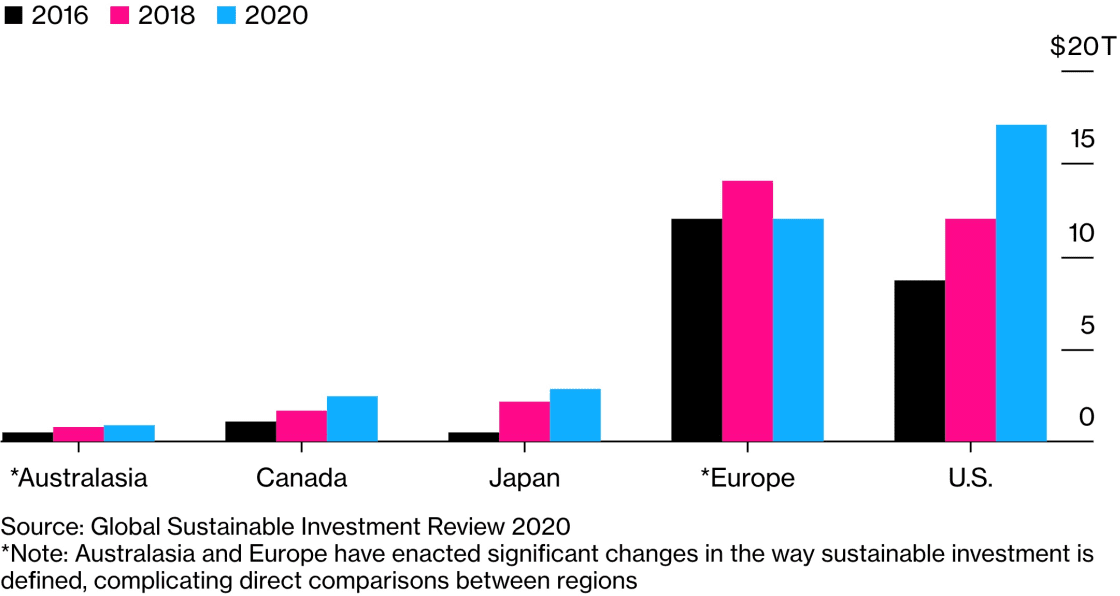
Here in New Zealand, we’re experiencing the same sharp shift in investment practices and client preferences, albeit at a slower rate. The responsible investment category grew by 28 percent to $142 billion last year, lifting its market share from 38 percent to 43 percent, according to the latest annual report from the Responsible Investment Association Australasia, launched this week.
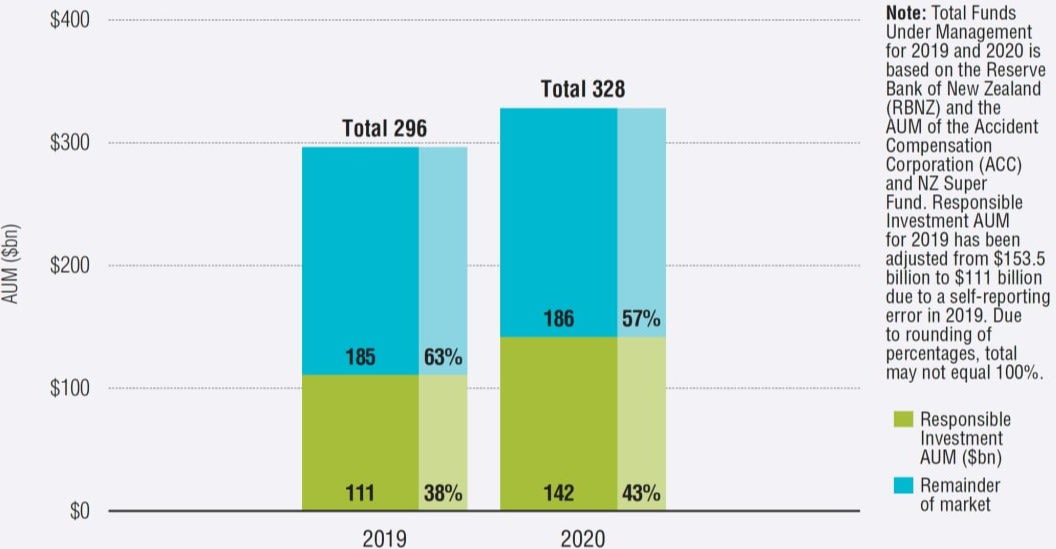
RIAA also reported that fund managers are increasing their capabilities in responsible investment. Twenty of them achieved between 15 and the maximum of 20 points on its scorecard, earning them the designation of “leaders,” while a further 27 scored lower.
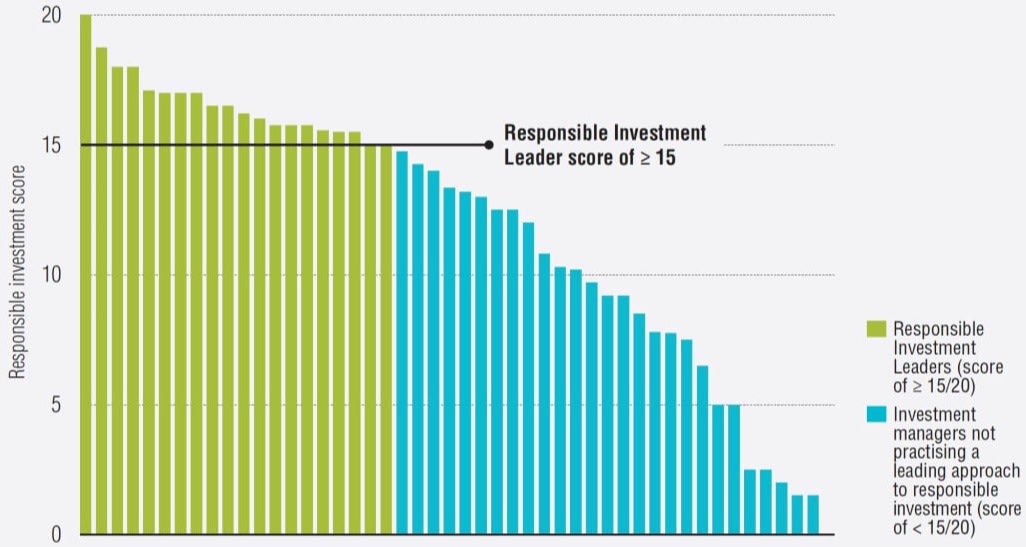
Climate change and natural capital (i.e. the environment) are by far the two most popular themes for responsible investment here in New Zealand, while social, waste, healthcare and other ESG themes attracted minimal, and falling, interest, RIAA reported. Again, that’s broadly in line with trends overseas.
I’ll return at the end of the column with a suggestion about how KiwiSaver members and other retail investors can be smart and active in this crucial category of investments. It’s worth doing so because you can genuinely help us along the road to sustainability on climate and our other great challenges. Even more so now the Government requires its default KiwiSaver providers to use ESG practices.
Meanwhile, back to the global picture. Analysis of claims by climate-related investment around the world are deeply disturbing, as InfluenceMap, a UK NGO, recently reported. It showed that very few of them were aligned with the goals of the 2015 Paris Agreement. Worse, most actually had a negative correlation with the goals. Broad ESG funds were equally as bad.
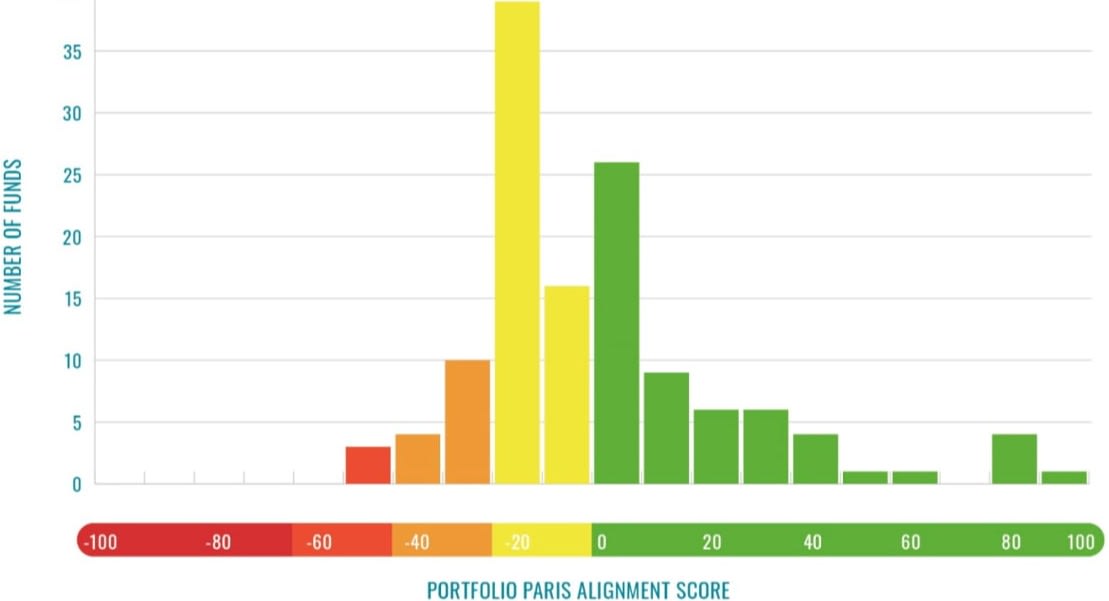
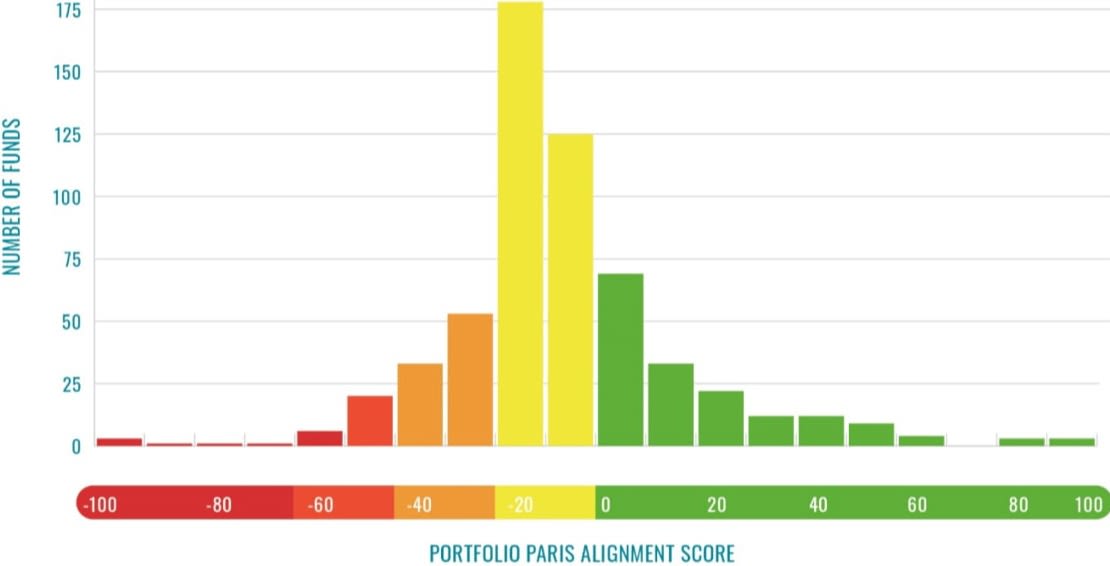
In the same vein, EDHEC, a Paris-based business school will release its Doing Good or Feeling Good? Detecting Greenwashing in Climate Investing report on September 21. Many climate-related ESG funds aren’t run “in a manner that is consistent with promoting such an impact,” it says in pre-publicity for the report. One example it cites is the US$22.5bn iShares ESG Aware MSCI USA tracker fund. Nine of its 10 largest holdings are in the top 10 largest stocks in the broad market S&P 500 index.
The global debate over ESG has heated up considerably in recent months, fueled in part by a long essay by Tariq Fancy, who was BlackRock’s first Chief Investment Officer for Sustainable Investing for a year before he quit the company in 2019 because he was deeply disillusioned by its ESG practices. BlackRock is the world’s largest asset manager with some US$9 trillion of funds under management.
ESG “is a dangerous placebo,” Fancy wrote in his essay entitled The Secret Diary of a ‘Sustainable Investor’. His full version is free on Medium and his short version is free on USA Today’s website. In the latter, he wrote:
“In essence, Wall Street is greenwashing the economic system and, in the process, creating a deadly distraction. I should know; I was at the heart of it.”
Amongst the extensive coverage of his views, two articles in The Financial Times are particularly worth reading, one an interview with him, and the other analysis by Robert Armstrong, one of its US financial market columnists. You can access them through the FT’s four-week trial subscription, which costs US$1.
Regulators are responding to these mounting concerns. In March the US Securities and Exchange Commission created a Climate and ESG Task Force to “proactively identify ESG-related misconduct” such as inaccurate or incomplete disclosures by funds and companies. In April it issued a Risk Alert on the subject.
US and European regulators are investigating, for example, DWS Group, Deutsche Bank’s investment arm. As the Bloomberg news service commented: “Though the Deutsche Bank unit says it did nothing wrong, the development has led to a moment of reckoning as fund managers wake up to a new regulatory era in which once fluffy environmental, social and governance definitions are no longer tolerated.”
In a further step six weeks ago, the International Organisation of Securities Commissions released a consultation document to help its member regulators assess the practices of providers of ESG ratings and data which fund managers rely on very heavily to make their investment decisions.
Here in New Zealand, though, our regulator is very much on its backfoot. Only last December did the Financial Markets Authority release a broad guidance paper on the ESG sector which had been some 18 months in the making.
The overall concept is promising. The FMA says it’s working towards an integrated financial system to facilitate the four capitals in the government’s Living Standards Framework - financial/physical, natural, human and social.
That’s core and crucial work for a sustainable future for Aotearoa. But from there, the paper jumps to the other end of the spectrum – the promotion and marketing of investment claims to sustainability. Even then, it lays out only broad principles.
But what’s missing in the middle are any standards by which the FMA can judge whether fund managers and the companies they invest in are delivering on their claims. The absence of such standards will make regulatory enforcement nigh on impossible.
I asked the FMA if it had received any complaints, undertaken any investigations, or issued any regulatory or legal action on ESG investments. In reply it said that, as a matter of policy, it only discloses such information when publicity is made part of a penalty.
Hopefully, we will eventually get such standards from the External Reporting Board, a statutory body, so the FMA can be tougher. Soon, for example, it will lay down how large companies required to disclose their climate-related financial risks will do so. Its empowering legislation allows it to develop a full suite of financial reporting standards on wider environmental and other issues too. But that highly complex task is going to take a long time.
Meanwhile, how can you respond as a retail investor? First and foremost, be encouraged by the growth of ESG investment options and the increasing capability of providers. But be smart about who and what you choose. The sector knows it’s far from perfect but it’s working hard on its long to-do list.
Currently, for example, ESG means in the main simply picking stocks in a particular sector that have a better ESG score than others in the same sector, or actively excluding whole sectors such as fossil fuels, weapons, tobacco, gambling, and alcohol. For example, 15 percent of KiwiSavers now exclude fossil fuel investments, up from 2 percent in 2019, as Mindful Money, the responsible investment data provider and analyst, has reported.
Very soon, though, ESG providers must start to construct portfolios that very actively drive the likes of emission reductions on our journey to a net zero emissions economy. That will require far more thoughtful allocation of capital to companies and sectors that need and deserve investor support, and then to deeply engage with them. In return, such wise investments will reward wise investors.
If you want to know more about what the sector’s up to, the RIAA webinar this week on the release of its latest report is worth watching. The first 40 minutes presents the report, the following 50 minutes is a useful panel discussion. For example, there was common agreement that more comprehensive, more active regulation was needed. But there was only fleeting reference to the intensifying global debate on ESG.
Here in New Zealand “there are some really good funds doing really good practice,” says Barry Coates, the founder and chief executive of Mindful Money. “However, there's a lot that aren't. They’re using the term responsible investing but are not actually carrying it through into practice, either through their portfolios, or through engagement with companies they invest in.”
We can all push our fund managers to do more and better for us as clients, and by extension for the economy, environment, and society. Make a start by understanding what investments are in your portfolio, whether that’s a KiwiSaver or a collection of other funds.
Mindful Money’s website can provide you with the lists of individual stocks, and their sectors, in hundreds of those funds. And it can compare different KiwiSaver and other funds to help you choose ones that best meet your investment criteria.
Here’s an example. Go to this page to check and type in the name of your KiwiSaver.
For example, I typed in Christian KiwiSaver Growth Fund. I’m not a member but it is managed by the New Zealand Anglican Church Pension Board. Back in 2014 as a member of our Anglican General Synod, I helped lead the Church’s commitment to divest from fossil fuels. I was curious to check on progress the Pension Board had made since.
Well, Mindful Money showed me that the Pension Board’s Christian KiwiSaver Growth Fund still has 3.47 percent of its investments in fossil fuels. In addition, it has 3.78 percent in companies flagged for animal testing; 3.09 per cent flagged for human rights and environmental violations; and 0.65 percent flagged as producers of alcoholic drinks. That’s a total of 11 percent of its portfolio, with all the flagged stocks listed.
That’s the power of data and analysis. Use it on your investments. Take up your concerns with your fund managers. If you’re unhappy with their response, switch fund managers.
After all, it’s your money. Make sure it’s working well for you and for others.

